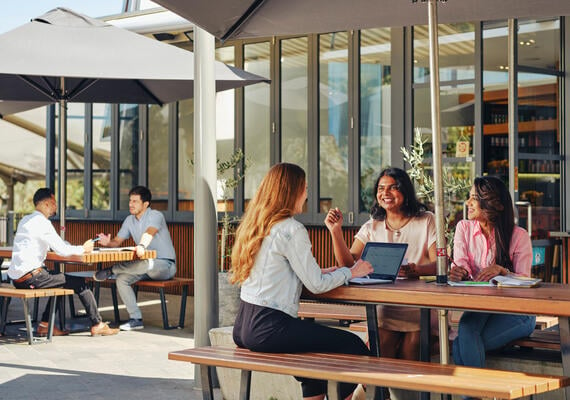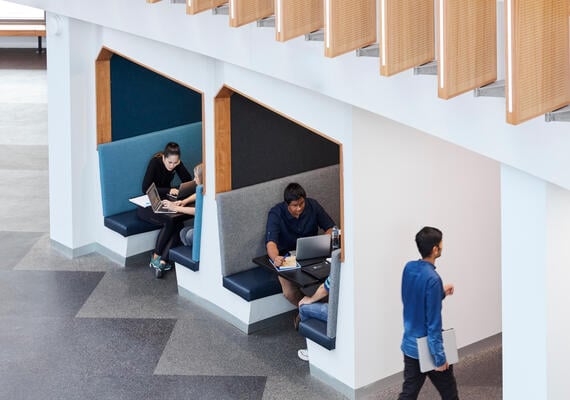
Support our communities
Whether it's establishing a new scholarship for someone who might not otherwise have the chance to go to university or providing funding for a cutting-edge research program, you can make a difference through Deakin.
We work with local councils, support arts and cultural initiatives, engage with businesses and connect with educational institutions like TAFEs. Additionally, Deakin is proud to sponsor local sports teams, fostering community spirit and inspiring future generations.
Through specialised teaching programs, we collaborate with schools, community centres and local organisations to deliver learning experiences that address real-world challenges.
By sponsoring cultural festivals, sporting events and social initiatives, our aim is to enhance the vibrancy and resilience of the communities around us.
Through internships, industry projects and placements, our students apply their skills in practical settings, supporting local and global organisations, while preparing for their future careers.
Deakin’s long-term partnership programs with government bodies, not-for-profits organisations, sports clubs and community groups are designed to address community needs, innovate solutions and create sustainable outcomes.
As two organisations with strong roots in the broader Geelong community, we have been able to forge and significantly develop a mutually beneficial partnership over the past two decades.
Simon Kelleher
Chief Operating Officer, Geelong Football Club
Gain access to our spaces and expert support. Whether it’s a workshop or community gathering, by partnering with Deakin we can help you every step of the way. We offer a variety of flexible spaces across our Melbourne Burwood, Geelong Waterfront, Geelong Waurn Ponds and Warrnambool campuses.
Deakin’s industry partnerships extend across diverse sports and related fields. Deakin proudly sponsors the Melbourne Vixens netball team and the Geelong Cats AFL team. Additionally, we are the naming rights partner for the Deakin University Elite Women’s Road Race, a highlight of the Cadel Evans Great Ocean Road Race. Our students benefit from over 150 industry connections, collaborating to advance sport science.

Whether it's establishing a new scholarship for someone who might not otherwise have the chance to go to university or providing funding for a cutting-edge research program, you can make a difference through Deakin.

Community organisations and individuals can access a range of Deakin’s state-of-the-art facilities to support their activities and initiatives, including meeting rooms, libraries, art galleries, sports venues and event spaces.
The Deakin University Art Gallery celebrates creativity through dynamic exhibitions, public programs and educational initiatives. It fosters community connections, supports local artists and inspires through diverse artistic expressions.
Deakin references data from a range of government, higher education and reputable media sources. For more information, visit our University rankings page.
Contact us to learn more about hiring our event spaces. We offer a variety of flexible spaces across our campuses.